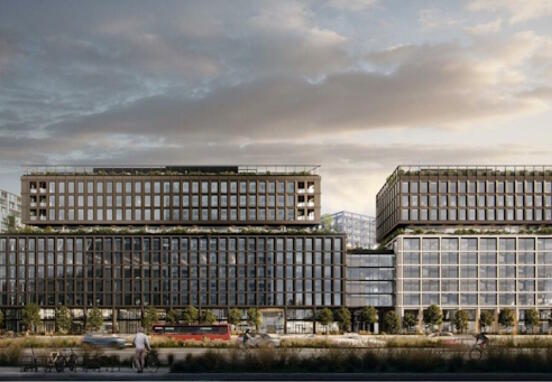Austria's Commercial Real Estate Sector Under Scrutiny
The Austrian Financial Market Authority (FMA) has issued a clear warning regarding escalating risks within the country's commercial real estate market. According to FMA Director Helmut Ettl, the persistent high share of non-performing loans (NPLs) remains a significant concern, preventing the supervisory body from signaling any easing of market conditions. This critical indicator, reflecting loans where borrowers have failed to make scheduled payments for a significant period, has seen a sharp increase.
Rising Non-Performing Loans: A Key Indicator
Data from the FMA reveals a notable surge in non-performing loans within the Austrian commercial property sector. At the close of 2023, the share of NPLs stood just above three percent. However, this figure has since climbed to an average of 5.4 percent in recent months. This upward trend signals potential financial distress within the sector and prompts heightened vigilance from regulatory bodies. The FMA's stated goal is to revert to an “Austrian normal” to ensure the stability of the banking sector, indicating that close monitoring will continue.
What This Means for Businesses Seeking Office or Warehouse Space
For businesses actively searching for office, retail, or warehouse space in Austria, these market dynamics carry important implications. While rising risks might initially seem daunting, they can also present unique opportunities:
Potential for Market Adjustments
An increase in non-performing loans often precedes, or coincides with, periods of market adjustment. This could lead to more cautious lending practices from banks, potentially slowing new commercial developments. For prospective tenants or buyers, this might translate into:
- More competitive rental rates as landlords seek to maintain occupancy.
- Increased negotiation leverage for long-term leases.
- Potential availability of attractive properties that might not have been on the market otherwise.
Focus on Stability and Due Diligence
The FMA's emphasis on banking sector stability means that financial institutions will likely exercise greater scrutiny over new commercial real estate projects. Businesses should prioritize partners and properties that demonstrate strong financial health and sustainable business models. Conducting thorough due diligence on potential landlords or property developers becomes even more critical in this environment.
A Stabilized Residential Market Offers Contrast
In contrast to the commercial sector, conditions in Austria's private (residential) real estate market are showing signs of stabilization. This distinction highlights that the current concerns are largely concentrated within the commercial segment, driven by specific economic and lending factors affecting businesses and developers.
Strategic Navigation in a Changing Landscape
While the Austrian commercial real estate market presents heightened risks, it also opens doors for strategic decision-making. Businesses looking to expand or relocate should remain informed, carefully evaluate market offerings, and consider how current conditions might be leveraged to secure more favorable terms for their commercial space needs. Staying agile and consulting with real estate experts can provide a significant advantage in this evolving landscape.
Source: reality.trend.sk







